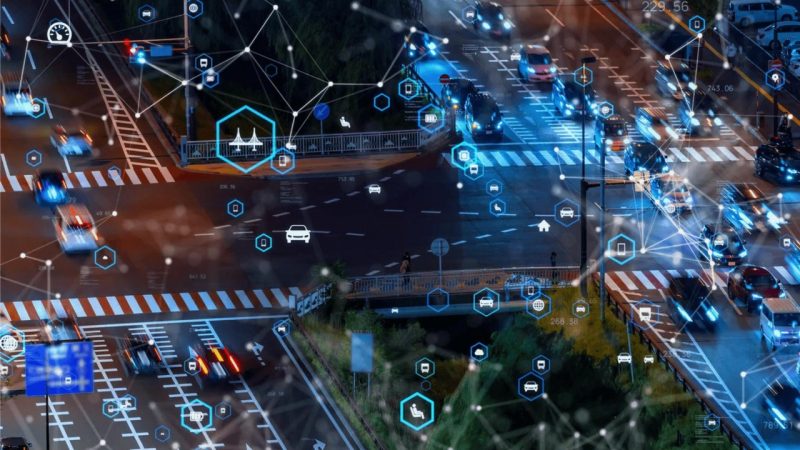- Orcoda’s (ODA) Intelligent Transport Management Systems (ITMS) will interoperate with smart devices and infrastructure to aggregate and optimise transport logistics
- The more-than-$1 trillion smart city industry is expected to grow 150 per cent by 2030
- Orcoda’s acquisition of The Betta Group allows it to provide both infrastructure and smart technology to upgrade transportation networks
- The installation and electrification of smart technology for transport corridors has led to a 59 per cent increase in sales for Orcoda in Q1 FY23
- ITMS solutions will be used to manage traffic flows to reduce congestion, thereby helping reduce carbon emissions
Technology is rapidly getting better, cheaper and more efficient — and governments and urban planners across the world are looking to improve our cities by turning them into ‘Smart Cities’ that will help decarbonise our energy use for a more sustainable future.
A comprehensive urbanisation study by the United Nations in 2018 laid out that by 2050, the world would be 68 per cent urbanised — that’s an extra 2.5 billion people that will live in cities in a little over three decades.
Those 2.5 billion souls will require the use of our carbon-emitting transportation networks, whether by road, rail or air, and it’s our smart cities that will enable us to create more efficient, less-polluting urban networks.
Smart cities
Smart cities are already being rolled out, evolving our traditional networks and services to lower our carbon footprint using cutting-edge digital solutions, including 5G technologies.
These technologies provide upgrades to water supply and waste disposal facilities, create more efficient ways to light and heat buildings, and fully integrate transport, communication and energy infrastructure processes.
For cities to be considered ‘smart’, they require three core components: connectivity, data analytics and electrification.
Connectivity refers to infrastructure that supports data communication between devices, platforms and network systems, while data analytics using artificial intelligence examines large data sets to identify trends and patterns to help optimisation.
While these first two components are important in their own right, it is electrification that will play a key role in decarbonising energy consumption across various sectors such as heating, cooling and transportation.
Electrification
Electrification is the conduit that enables our modern functionalities to connect where people travel and live, in a fully electrified, digitalised and energy-efficient network.
Traditional infrastructure such as road signs and traffic lights will be replaced with Intelligent Transport Management Systems (ITMS) that will interoperate with smart devices and upgraded transport management platforms.
ITMS will be used to manage traffic flows to reduce congestion, thereby helping reduce carbon emissions from idling vehicles — making electrification pivotal to help move our world to a more sustainable future.
One such early mover in this space in Australia is ASX-listed Orcoda (ODA), which provides transport logistics software and transport services to help businesses streamline supply chains and become more efficient.
The tech company’s cloud-based end-to-end software platforms enable businesses to generate next-gen logistical information for the movement of people, parcels and goods in order to optimise transport efficiencies — an integral part of a smart city transportation ecosystem.
Vertical integration
In November 2020, Orcoda moved to grow its business into a vertically-integrated electrification solutions company by purchasing transport infrastructure services provider The Betta Group, providing it with the necessary assets to win infrastructure contracts and implement Orcoda’s software and management expertise in projects.
Geoff Jamieson, Managing Director of Orcoda, said The Betta Group’s smart device installation and electrification capabilities had already made Orcoda stand out as a one-stop-shop for the implementation of ITMS solutions in Australia.
“Our transport infrastructure services (via The Betta Group) deliver electrification optimisation solutions primarily in major road, rail and air infrastructure projects and are an integral part of achieving our smart city vision — a total eco-system of interconnected technology providing big data to drive continual optimisation,” Mr Jamieson said.
He said demand was currently coming from the electrification of its smart technology associated with fibre optic networks and smart devices in transportation corridors, together with traditional income streams such as the company’s cloud-based optimisation platforms.
“The installation and electrification of smart technology for transport corridors make Orcoda very unique in the marketplace, and electrification has [already] led to a 59 per cent increase in customer receipts for the first quarter of FY23.
“Electrification is an integral part of creating smarter cities and smarter highways that can help us move towards a more sustainable future.”
A global trend
According to a recent OECD Smart Cities and Inclusive Growth report, countries such as Korea and many in Europe and South East Asia have long been focusing on connecting smart city services, with governments putting large amounts of emphasis on creating smart city ecosystems.
Powered by the global shift towards sustainable solutions and currently estimated to be worth more than 1 trillion globally, the smart city industry is expected to have an annual growth rate of 24.2 per cent up to 2030.
Can Orcoda help electrify Australia’s move towards its own smart city goals?

